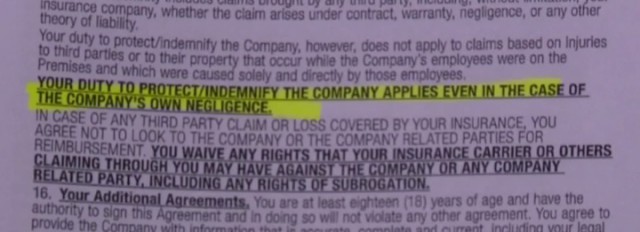
After sending 25 letters of support for the Comcast-TWC merger, the Boys & Girls Club is getting $8 million to build the Ralph J. Roberts Boys & Girls Club in Germantown, Penn. (Roberts is the founder of Comcast.)
One of Comcast’s most enthusiastic supporters for its (failed) merger deal with Time Warner Cable has just received a multi-million dollar donation from Brian Roberts, the CEO of Comcast to build a new state-of-the-art facility in Germantown, a neighborhood in Philadelphia.
The Boys & Girls Club and its various chapters pelted state and federal regulators with letters supporting Comcast at a time when the company was seeking approval of its merger with Time Warner Cable. Just a few weeks after the merger left the headlines, Comcast has announced it will spearhead a $40 million campaign to renovate six clubs in the region. Senior executive vice president David Cohen will serve as campaign chair.
An $8 million contribution from Comcast’s CEO and the Ed Snider Youth Hockey Foundation will cover much of the construction costs for the Germantown facility, which the non-profit group will name the Ralph J. Roberts Boys & Girls Club, in honor of Comcast’s founder.
For much of the 14 months the Comcast-Time Warner Cable merger was being reviewed by regulators, Comcast repeatedly name-dropped the non-profit as a supporter of the transaction. The group’s various chapters sent not less than 25 letters of support for the deal:
“We believe that a company as committed to community service as Comcast deserves our support and our gratitude,” wrote Joseph and Lisabeth Marziello, the CEOs of the Boys & Girls Clubs of Philadelphia, in a letter to the FCC. “We are confident that if Comcast extends its footprint into the areas now served by Time Warner Cable, nonprofit agencies in those communities will reap the benefits.”
Asking nonprofit groups to write letters of support is “good politics” for Comcast, said Free Press’ Matt Wood, because it gives the merger a “public-interest veneer.”
Pennsylvania’s Sens. Bob Casey (D) and Pat Toomey (R) went out of their way to mention the group in a letter to FCC chairman Thomas Wheeler:
We have seen firsthand Comcast’s record as an outstanding corporate citizen. Comcast assists 1,200 non-profits through its foundation, serves hundreds of thousands of young people through the Boys and Girls Club of America, and has invested $57 million in training for workers to keep them competitive in today’s economy.
Lost in the millions of dollars now changing hands was the impact of the proposed merger on consumers, including the kids that use the Boys & Girls Club facilities. Comcast has raised prices on its broadband service repeatedly and made participating in its Internet Essentials discount program too cumbersome for many income-challenged residents to participate. But the Boys & Girls Club came out ahead.
Stop the Cap! continues to urge our readers to consider donating only to non-profits that focus on their mission, not on quid pro quo back-scratching that works against the best interests of the very people who give their time and money to non-profits. It’s clear the Boys & Girls Club is already getting plenty of help from Comcast. They don’t need yours.


 Subscribe
Subscribe Just in time for the summer fireworks, Comcast’s own rate explosion may be arriving in your mailbox. The cable company is boosting rates on cable television and broadband service in several regions, including higher Broadcast TV surcharges and, for some, the introduction of a new compulsory sports programming fee. Comcast customers shared their rate increase letter
Just in time for the summer fireworks, Comcast’s own rate explosion may be arriving in your mailbox. The cable company is boosting rates on cable television and broadband service in several regions, including higher Broadcast TV surcharges and, for some, the introduction of a new compulsory sports programming fee. Comcast customers shared their rate increase letter 




 The village of Ogden, Ill., no longer has an official website. Comcast
The village of Ogden, Ill., no longer has an official website. Comcast 